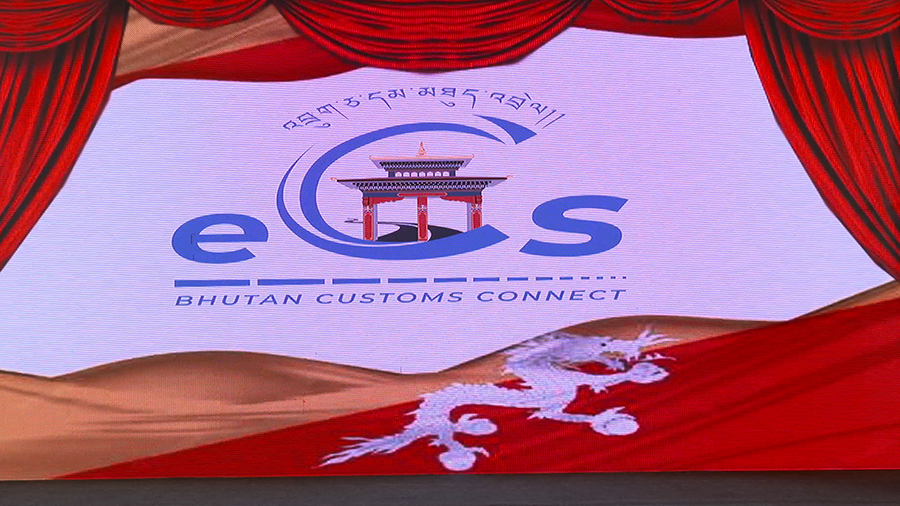
After more than eight months of trial, the Department of Revenue and Customs launched the Electronic Customs Management System or eCMS, today. The eCMS is expected to streamline customs procedures, reduce paperwork, and prevent tax evasion. The system is a web-based application, accessible to individuals and businesses doing international trade.
The trial phase of the eCMS project cleared almost 450,000 customs declarations. The Department of Revenue and Customs say the eight-month trial was a success.
The trial system did not have all the components that customs officials, and clearing and forwarding agents require.
“We have divided the development into two phases, that is developing the core modules and non-core modules. The core modules include the modules that require to be cleared from customs. And non-core modules are the sub-sector of core modules that are required just by the customs. If I give an example, in the core modules, we have import, export and transact whereas, in the non-core module, we have post clearance audit that is mainly about the customs control,” said Selden, the Project Manager, eCMS, Department of Revenue and Customs.
The department says that the eCMS has cut down customs procedures from 10 to five.
Selden said, “With the implementation of the eCMS, any clearing and forwarding agent that has been authorised by the traders, can submit the declaration online through the eCMS. They do not have to visit the customs area or RRCO at the border to submit the declaration.”
Apart from reducing the time and cost associated with customs clearance processes, the eCMS is also expected to increase the accuracy and efficiency of customs procedures.
The system will also help reduce the risk of fraud or smuggling and improve compliance with customs regulations.
The first step for eCMS registration is for individuals and businesses to update their profile on the Revenue Administration Management Information System or RAMIS.
Samten Dolkar
Edited by Sherub Dorji








